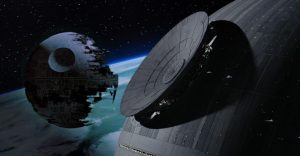Mephisto Predicted The X-Men’s Downfall on Krakoa Thirty Years Ago

The primordial being Mephisto is known as the manifestation of evil in Marvel Comics, and he accidentally predicted the potential fall of the X-Men’s new nation of Krakoa decades ago. In Ann Nocenti and John Romita Jr.’s Daredevil run, Mephisto remarks on how shortsighted humanity’s vision of evil is, something that the mutants of Krakoa have fallen prey to in recent publications.
Mephisto is an immortal primordial demonic entity, first introduced in The Silver Surfer #3 by Stan Lee and John Buscema. He rules a fire-and-brimstone realm he calls Hell, although he has made it clear that he is not the “Devil,” he lets humans believe he is the Christian concept of Satan. Mephisto presides over Hell by collecting souls from humans, forcing them to make pacts with him, and then trapping their souls in the bodies of “demons” in his domain. While Mephisto has not interacted with the mutant nation of Krakoa, at least not that we know of yet, it would be fascinating to hear his opinion on their new found immortality, and what constitutes as a mutant soul when they can be resurrected.
In Daredevil #278 – written by the legendary Ann Nocenti with gorgeous art by John Romita Jr. – Mephisto is overseeing his realm and waxing poetic on humanity’s perception of Hell to his fabricated son Blackheart. He whines that the human’s version of the Underworld “is a very boring place” and that humanity often only sees true evil as “one master, dominating a slaverace.” But in fact, real evil has a “startling range” and does not always appear as egregious acts of violence or terror. In the X-Men’s current era they are fighting against enemies on multiple fronts, focusing on the big picture evils of organizations like Orchis and the upcoming war with the Eternals, when in reality the things that are causing cracks to form in Krakoa’s foundation are often internal, insidious, evil actions and behaviors, just as Mephisto describes.

Both Professor X and Magneto allowed Moira X’s selfish ban on resurrecting precognitives to last way too long, which directly led into the devastating events of Inferno. They also both agreed to create a literal jail in their “paradise,” which has led to Sabretooth and other mutants beginning a revolt against the Council in the pages of Sabretooth. Similarly, in New Mutants a major plot was that the mutant leaders would not allow No-Girl to sacrifice herself in the Crucible to be reborn in a different body, although thankfully Storm reverted this rule and acknowledged how harmful and hypocritical this particular form of evil was, created by the mutants themselves. Throughout the X-Books there are multiple examples of these seemingly “lesser evils” in leaders’ eyes that contribute to true destruction and hatred, and this mirrors many of the real life battles of those dedicated to social and racial justice. A strong example of this is “white feminism” which centers the oppressed experiences of white women at the cost of intersectional activism for queer women and women of color, which in the end actually damages the feminist movement and creates divides and cracks in the foundation of progressive movements.
Mephisto was clearly not thinking about the future of the X-Men when he pondered humanity’s view on evil, but that doesn’t take away from the fact that for years the Marvel Universe has been dealing with a real tension in their plots, with heroes often ignoring the nuances of oppression and evil. Should heroes like the X-Men solely be focusing on massive evil villains, or should there also be teams dedicated to combatting things like racism, over-policing, and the controlling of others bodies, and will these blind spots eventually lead to the true downfall of a nation like Krakoa? Make sure to keep up with all the X-Men books from Marvel Comics to see if Mephisto’s timely prediction from thirty years ago comes true.
About The Author

















